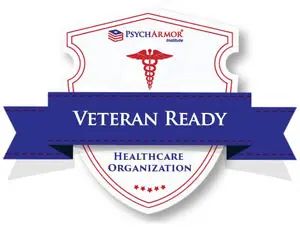How Parents Can Talk to Teens About Alcohol and Drugs
 Your teen watches you have a cocktail or two after dinner and celebrate every special occasion with champagne. One of their uncles sits on the back porch during family gatherings and smokes a joint instead of a cigarette, since marijuana is legal in New Jersey. Is it time to move beyond the “do as I say, not as I do” position on substance use? Probably.
Your teen watches you have a cocktail or two after dinner and celebrate every special occasion with champagne. One of their uncles sits on the back porch during family gatherings and smokes a joint instead of a cigarette, since marijuana is legal in New Jersey. Is it time to move beyond the “do as I say, not as I do” position on substance use? Probably.
Yeah, You’re Gonna Need to Talk About It
Most adults are savvy enough to know that kids often try things they shouldn’t—after all, we were once their age, and we shake our heads in amazement over what we got caught doing and what we got away with doing.
Sometimes, parents can’t help but believe their children would never do this or that. It’s not because they think their offspring are perfect angels—it’s more that they simply haven’t entertained the idea of certain scenarios. Plus, individual parenting styles determine multiple factors in the family dynamic, including communication. So for some people, it’s easy to put off important conversations or avoid continual dialogue about sensitive topics.
Nevertheless, open a channel you must—and much earlier than you might think. Sure, it may feel awkward at first, but it’s one of the top preventative measures you can take against underage substance abuse. The Substance Abuse and Mental Health Services Administration (SAMHSA) states that “children as young as nine years old already start viewing alcohol in a more positive way, and approximately 3,300 kids as young as 12 try marijuana each day. Additionally, about five in 10 kids as young as 12 obtain prescription pain relievers for nonmedical purposes.”
SAMHSA points out additional reasons to start a conversation early:
- About 10 percent of 12-year-olds say they have tried alcohol.
- By age 15, that number jumps to 50 percent.
- Additionally, by the time they are seniors, almost 70 percent of high school students will have tried alcohol, half will have taken an illegal drug, and more than 20 percent will have used a prescription drug for a nonmedical purpose.
Here are tips to help create a bridge with your child about understanding the risks of substance use.
Establish a Sharing Foundation With Your Teen
As adolescents develop more independence and individuality, it might seem that they’re total strangers at times. This is completely natural! They could also really not want to talk about anything with you—not their friends, how school is going, much less drugs and alcohol use. This is also a typical stage in the teen-parent dynamic. So your first step is to create better communication.
The Child Mind Institute recommends that you:
- Reduce feelings of judgment. This is “inner” work you’re responsible for to create a safe space for your child to talk about anything and not be afraid of what you think. Yes, you’ll probably need to impart some parenting wisdom and reinforce boundaries and expectations at some point, but your first goal is to help them understand that open dialogue about difficult subjects is important.
- Spend special one-on-one time without heavy conversations. This increases the bond between you and your teen without an ulterior motive.
- Try an indirect approach. Share ideas and other topics while driving, cleaning up after dinner, playing games, or shooting hoops. Position yourself as an active listener, and you might be surprised at what they open up about as they feel more comfortable.
These are all foundational skills that help establish more opportunities for effective dialogue. In this type of supportive environment, all kids make better decisions. Here’s another essential tip: they really are listening to what we say and modeling everything we do, even if they don’t acknowledge it at first. So if you’re calm, open, and informational, they’ll respond.
Common Sense Media offers tips for better communication by age group that might help give you more insight.
Talking to Your Teen About Alcohol & Drugs
Now you’re ready to be more direct about how much you care for them and clarify your position about drug and alcohol use. SAMHSA provides a guide of talking points to make this easier. They include:
- Express your position about underage substance use. Make it clear and state the facts so there’s no misunderstanding.
- Reinforce that you’re on their side and always value their health and well-being.
- Educate yourself about the effects of drugs and alcohol so they trust you as a viable source of information.
- Use good communication to stay on top of what your teen and their friends are doing.
- Work with your teen to develop a plan to avoid peer pressure and make responsible choices.
There’s no need for threats, guilt, or shame. Instead, let your teen know how much easier this topic is to navigate together.
Now, what if you’re in recovery for alcohol or drug abuse? How much should your child know about your experiences? This can sometimes be a challenge, especially if their lives were negatively impacted by your behavior. However, you have much deeper relatable points, too, so are some ideas for talking to teens about it.
Family Matters at Seabrook
We want to make certain our clients and their families have all the tools they need to live healthy, substance-free lives. That’s why we developed the Family Matrix program: a chance to explore relationships and topics related to addiction. This is just one small component of the comprehensive therapeutic approach for people in our care.




